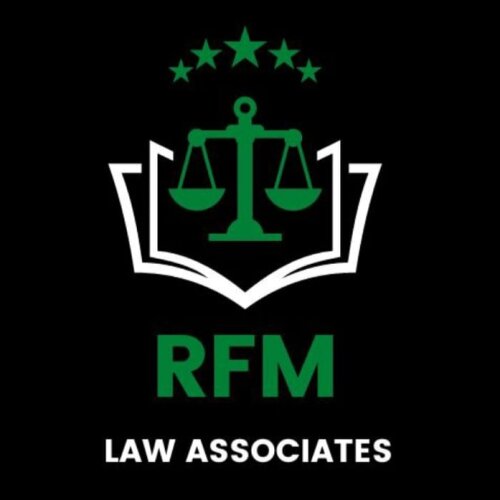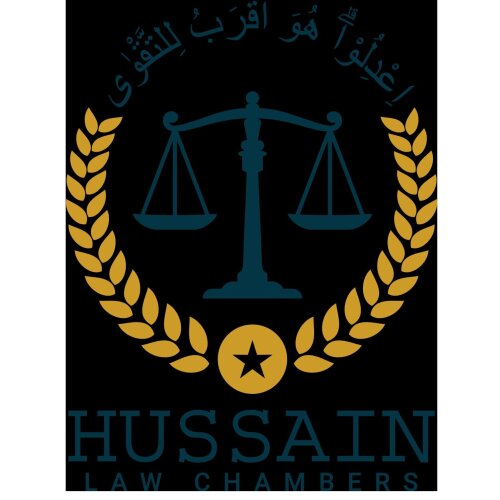Best Faith-Based Law Lawyers in Faisalabad
Share your needs with us, get contacted by law firms.
Free. Takes 2 min.
List of the best lawyers in Faisalabad, Pakistan
About Faith-Based Law in Faisalabad, Pakistan
Faith-Based Law in Faisalabad, Pakistan, primarily revolves around the interpretation and application of Islamic principles as they pertain to legal matters. The legal system in Pakistan is a complex amalgamation of civil, criminal, and personal laws based on Sharia law. In Faisalabad, faith-based legal issues often encompass marital disputes, inheritance issues, charity law (Zakat), and business ethics according to Islamic jurisprudence. Understanding these laws is crucial for ensuring one's actions align with both religious beliefs and state laws.
Why You May Need a Lawyer
People may seek legal assistance in Faith-Based Law for various reasons, including marriage and divorce proceedings, inheritance and estate planning, resolving disputes over charitable endowments or trusts, and compliance with business practices under Islamic law. A lawyer with expertise in Faith-Based Law can help navigate the complexities of these issues, offer mediation services, and ensure that legal actions are compliant with both faith-based principles and the law of the land.
Local Laws Overview
Key aspects of local laws relevant to Faith-Based Law in Faisalabad include family laws under the Muslim Family Laws Ordinance, which governs marriage, divorce, maintenance, and custody. The law pertaining to inheritance is influenced by Islamic principles, prioritizing certain heirs and shares. Additionally, local business operations may need to adhere to Islamic ethical standards, such as profit-sharing and prohibition of interest (Riba). It's crucial to seek knowledge of these specific guidelines to ensure valid and lawful practices.
Frequently Asked Questions
What is the basis of Faith-Based Law in Pakistan?
Faith-Based Law in Pakistan primarily derives from Islamic principles as outlined in the Quran and Sunnah, interpreted by religious scholars and integrated into the country's legal framework.
How can I resolve a marriage dispute under Faith-Based Law?
Marriage disputes under Faith-Based Law can be resolved through mediation or legal proceedings as per the Muslim Family Laws Ordinance, often requiring the assistance of a qualified lawyer.
What are the inheritance rights for women under Faith-Based Law?
Women have specific inheritance rights allocated to them under Islamic law, ensuring a portion of the deceased's estate, though typically half the share of male heirs, reflecting the historical context of financial responsibilities.
Are there specific legal requirements for charities in Faisalabad under Faith-Based Law?
Yes, charitable organizations must adhere to Zakat and other charitable laws, ensuring funds are collected and distributed per Islamic principles.
Is interest or Riba allowed in business transactions?
No, Riba or interest is prohibited in all business transactions under Islamic law, promoting profit-sharing models like Musharakah or Mudarabah instead.
Can Faith-Based Law impact business ethics in Faisalabad?
Yes, businesses are required to comply with ethical standards based on Islamic values, affecting practices like transparency, fairness, and community welfare.
How do Faith-Based Laws affect family law in Faisalabad?
Faith-Based Laws significantly influence family law matters, including marriage, divorce, custody, and maintenance, with legal stipulations aligned with Islamic teachings.
What legal recourse do I have in case of inheritance disputes?
Inheritance disputes can be resolved through legal mediation, arbitration, or court proceedings with guidance from a lawyer knowledgeable in both Faith-Based and civil law.
Are there specific laws for Islamic banking in Faisalabad?
Yes, Pakistan has specific regulations for Islamic banking, ensuring financial products comply with Sharia principles and offering alternative services to conventional banking.
Can non-Muslims seek legal advice under Faith-Based Law in Faisalabad?
While non-Muslims mostly adhere to civil laws, they can seek advice if issues intersect with Faith-Based Law, though their personal laws remain the primary framework for their disputes.
Additional Resources
For individuals seeking guidance in Faith-Based Law, resources such as the Council of Islamic Ideology, local law firms specializing in personal and family laws, and governmental bodies like Faisalabad's district courts can be invaluable. These entities provide assistance and clarification on legal matters interwoven with religious principles.
Next Steps
If you require legal assistance in Faith-Based Law, it is advisable to consult with a lawyer specializing in this field. Begin by gathering relevant documents and details concerning your legal matter. Schedule a consultation to discuss your situation and explore available legal remedies. Ensuring open communication with your legal advisor will facilitate a clearer understanding of your options and obligations under Faith-Based Law in Faisalabad.
Lawzana helps you find the best lawyers and law firms in Faisalabad through a curated and pre-screened list of qualified legal professionals. Our platform offers rankings and detailed profiles of attorneys and law firms, allowing you to compare based on practice areas, including Faith-Based Law, experience, and client feedback.
Each profile includes a description of the firm's areas of practice, client reviews, team members and partners, year of establishment, spoken languages, office locations, contact information, social media presence, and any published articles or resources. Most firms on our platform speak English and are experienced in both local and international legal matters.
Get a quote from top-rated law firms in Faisalabad, Pakistan — quickly, securely, and without unnecessary hassle.
Disclaimer:
The information provided on this page is for general informational purposes only and does not constitute legal advice. While we strive to ensure the accuracy and relevance of the content, legal information may change over time, and interpretations of the law can vary. You should always consult with a qualified legal professional for advice specific to your situation.
We disclaim all liability for actions taken or not taken based on the content of this page. If you believe any information is incorrect or outdated, please contact us, and we will review and update it where appropriate.














